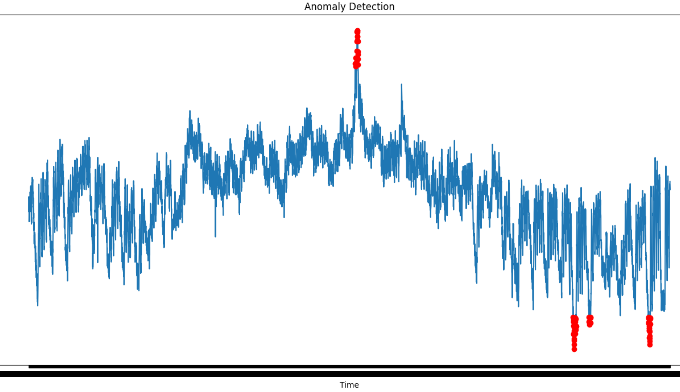In today’s ever-evolving retail landscape, businesses are constantly on the lookout for ways to improve customer experiences and streamline their operations. One crucial aspect that plays a pivotal role in achieving these goals is inventory management. Efficiently managing inventory is essential for maintaining optimal stock levels, minimizing product shortages, reducing costs. This will ultimately deliver outstanding shopping experience. With the advent of machine learning, retailers now have a powerful tool at their disposal to revolutionize inventory management and elevate their retail experiences. Let’s explore how machine learning is transforming the retail sector through advanced inventory management techniques.
Understanding the Challenges of Inventory Management
Traditional inventory management methods often rely on manual processes and basic forecasting techniques. Unfortunately, this approach is susceptible to human errors, inefficient utilization of inventory, and inadequate demand forecasting. Retailers face numerous challenges, including inaccurate predictions of customer demand, slow replenishment cycles.etc. This can lead to dissatisfied customers and lost sales opportunities.
Leveraging Machine Learning for Demand Forecasting
Machine learning algorithms have the remarkable ability to analyze vast amounts of historical sales and inventory data to extract meaningful insights. By harnessing this power, retailers can make accurate demand forecasts at both the product and store levels.
Machine learning models take into account various factors such as historical sales trends, seasonal patterns, promotional activities, and external variables like weather conditions or holidays to generate precise predictions. These forecasts empower retailers to optimize inventory levels, reduce overstocking or stockouts, and improve overall operational efficiency.
Dynamic Inventory Optimization
Machine learning algorithms go a step further by optimizing inventory levels dynamically based on real-time data. By continuously analyzing sales patterns, customer behavior, and market trends, these models adjust inventory levels to align with changing demand patterns. This dynamic approach ensures that the right products are available at the right locations and times, reducing stockouts and increasing customer satisfaction.
Furthermore, machine learning can identify slow-moving or obsolete items, enabling retailers to take proactive measures such as implementing markdowns or launching promotional campaigns to clear excess stock effectively.
Smarter Supply Chain Management
Machine learning’s impact extends beyond demand forecasting and inventory optimization. It can significantly enhance the efficiency of the entire supply chain. By analyzing data from various sources, including suppliers, transportation systems, and sales channels, machine learning models can identify bottlenecks, optimize logistics, and enhance order fulfillment processes.
Predictive analytics can optimize procurement, transportation routes, and warehouse operations, minimizing costs while ensuring timely deliveries.
Personalized Customer Experiences
Machine learning algorithms have the power to analyze customer data, such as purchasing behavior, preferences, and demographic information, to provide personalized recommendations and targeted promotions. By leveraging these insights, retailers can enhance the customer experience, increase customer loyalty, and drive repeat purchases.
For instance, imagine a customer browsing an online store who receives real-time recommendations based on their past purchases, preferences, and trending items. Such a personalized shopping experience encourages engagement and conversion, creating a strong bond between the retailer and the customer.
Fraud Detection and Prevention
Machine learning techniques also contribute to fraud detection and prevention in retail. Machine learning models can identify suspicious activities and flag potentially fraudulent transactions in real time by identifying patterns. This capability helps retailers minimize losses due to fraudulent activities and safeguard their customers’ financial information. This fosters trust and confidence among their customer base.
Here are five Indian startups that are making notable contributions in this field:
Moglix: Moglix is an e-commerce platform specializing in industrial goods and supplies. They utilize machine learning algorithms to optimize inventory management for businesses. Their platform offers features like demand forecasting, inventory optimization, and supply chain analytics.
Stockarea: Stockarea is a tech-enabled warehousing and inventory management startup. Their platform leverages machine learning algorithms to optimize warehouse operations, including inventory planning, space utilization, and order fulfilment.
Increff: Increff offers machine learning-driven solutions for inventory management and supply chain optimization. Their advanced algorithms provide real-time demand forecasting, intelligent order allocation, and dynamic inventory replenishment.
Eunimart: Eunimart is an AI-powered cross-border e-commerce enabler. They utilize machine learning algorithms to optimize inventory management for global sellers. Their platform provides real-time demand forecasting, dynamic pricing strategies, and inventory optimization across multiple marketplaces.
Primaseller: Primaseller is a cloud-based inventory and order management software provider. Their platform incorporates machine learning algorithms to optimize inventory levels, automate replenishment, and streamline order fulfillment processes.
Machine learning has ushered in a new era in retail inventory management, empowering businesses to transform their operations and deliver exceptional customer experiences. By harnessing the power of advanced algorithms and data-driven insights, retailers can make accurate demand forecasts, optimize inventory levels, streamline supply chain processes, and provide personalized shopping experiences. Embracing machine learning in inventory management is no longer an option for retailers.
As the retail landscape continues to evolve, those who effectively leverage machine learning will gain a significant advantage in meeting customer demands, maximizing profitability, and staying ahead in the rapidly changing retail industry.
















Leave a comment